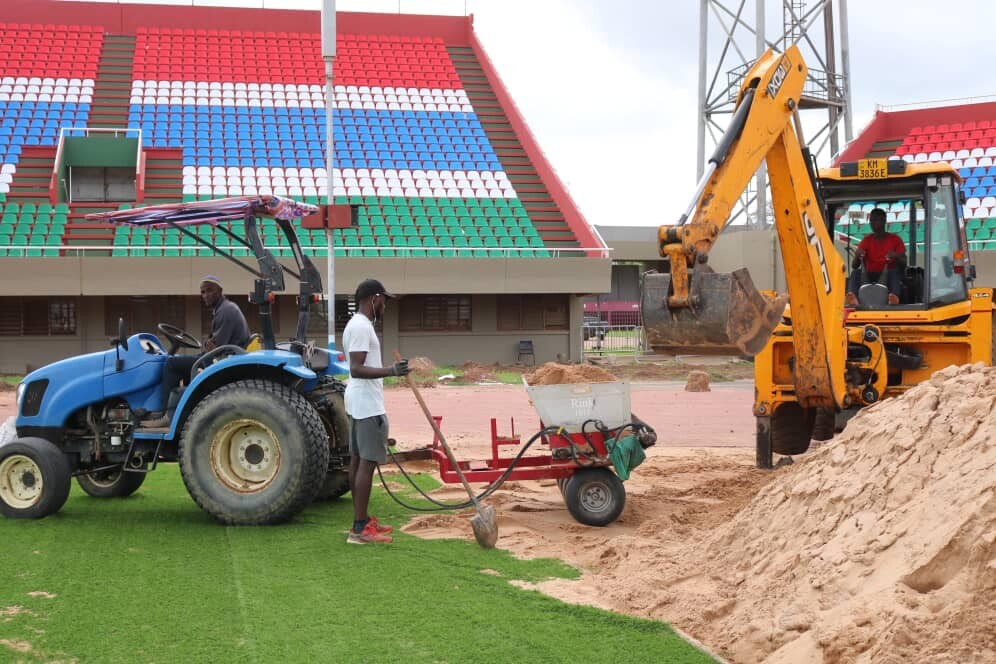Gambiaj.com – (BANJUL, The Gambia) – The Confederation of African Football (CAF) has withdrawn its earlier approval of The Gambia’s Independence Stadium in Bakau, once again banning the venue from hosting international matches.
The decision comes as part of CAF’s latest round of stadium inspections, which also affected facilities in Zimbabwe, Benin, Niger, Sudan, and Madagascar.
Pitch Condition at the Centre of the Reversal, A Blow for Gambian Football
CAF inspectors cited the poor condition of the pitch as the primary reason behind the U-turn. Despite recent government-led renovations that had briefly restored the stadium’s eligibility, the natural grass surface was found to be below the required international standard. Uneven patches, poor drainage, and inadequate turf maintenance were all flagged as serious concerns, raising safety and performance risks for players.
Beyond the pitch, CAF has consistently emphasized the need for modern stadium infrastructure, including fixed individual seating, upgraded floodlights, medical and media facilities, and advanced security systems. Independence Stadium, built in 1983, has undergone periodic renovations, but gaps remain in meeting CAF’s increasingly stringent criteria.
The reversal is a setback for Gambian football at a time when the Scorpions are seeking to consolidate their rising profile in African competitions. Forced to play ‘home’ matches abroad in the past, Gambia risks returning to that arrangement if urgent improvements are not made.
For fans and local businesses, the decision is particularly painful. Hosting international fixtures in Bakau not only boosts national pride but also drives economic activity around the stadium. The ban therefore carries financial and emotional weight, beyond the technicalities of CAF’s rules. Wider Continental Context
The Gambia is not alone in facing CAF’s clampdown. Zimbabwe’s National Sports Stadium, for instance, was also struck off the approved list after inspectors raised similar concerns about the pitch and spectator facilities. In recent years, CAF has banned more than 20 stadiums across Africa, underscoring the scale of infrastructure challenges on the continent.
Analysts note that CAF’s tough stance reflects a push to elevate African football to global standards, ensuring that players and fans enjoy safe, high-quality facilities. While the decisions are unpopular locally, they are seen as necessary to professionalise the game.
The Ministry of Youth and Sports, working with the National Sports Council and the Gambia Football Federation (GFF), now faces the urgent task of restoring Independence Stadium’s compliance. This will require not only immediate pitch rehabilitation but also long-term investments in maintenance and facility upgrades.
Football analysts in Banjul warn that temporary fixes will not suffice. Without a comprehensive stadium development plan, The Gambia risks repeated bans in future CAF assessments.
CAF’s reversal on Independence Stadium is a wake-up call for Gambian football authorities. As the Scorpions prepare for upcoming qualifiers, the focus must shift from short-term fixes to sustainable investments in sports infrastructure—ensuring that Gambia’s home ground can once again proudly host international football.










